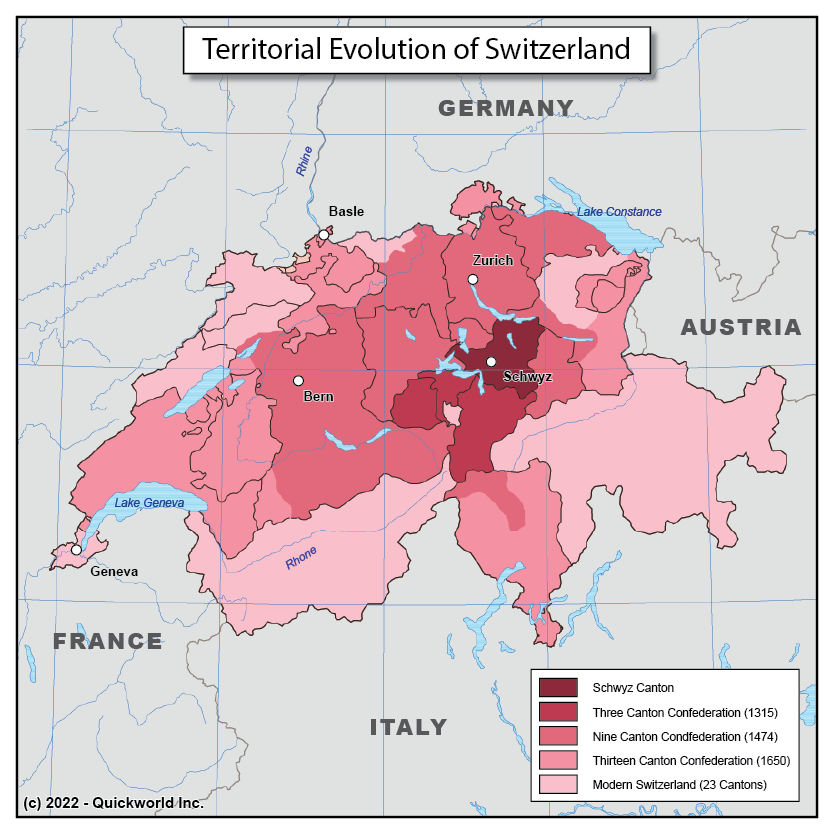Switzerland, while one of the smallest countries in Europe, is a remarkable nation in many ways. Its legendary neutrality, its completely decentralized administration, its linguistic diversity come to mind. Mountains, chocolate and banks are also part of the mystique it continues to exercise on the rest of the continent.
What is fascinating about this country is how it came to be. At the core of the nation are three small cantons up in the mountains that in 1291, much before anyone else in the Holy Roman Empire, defied the domination of the Emperor and proceeded to build the means to enforce their own sovereignty. Since the first agreements were signed in the town of Schwyz, the name "Schweizer Bund" was used to name the entity, from which the modern word "Switzerland" is derived. Those three cantons represent only 3% of modern Switzerland, but the model they proposed attracted more powerful regions, and larger cities like Lucerne, Zurich, Bern, Fribourg and Basel joined the Bund. International recognition was finally achieved at the Peace of Westphalia in 1648. After the Napoleonic Wars, the Congress of Vienna allowed Switzerland to acquire the city of Geneva, giving it its modern borders. Despite being surrounded by larger nations who engaged in brutal wars from 1870 to 1945, Switzerland has remained at peace since 1815.
More on Switzerland
Territorial Formation of Switzerland


